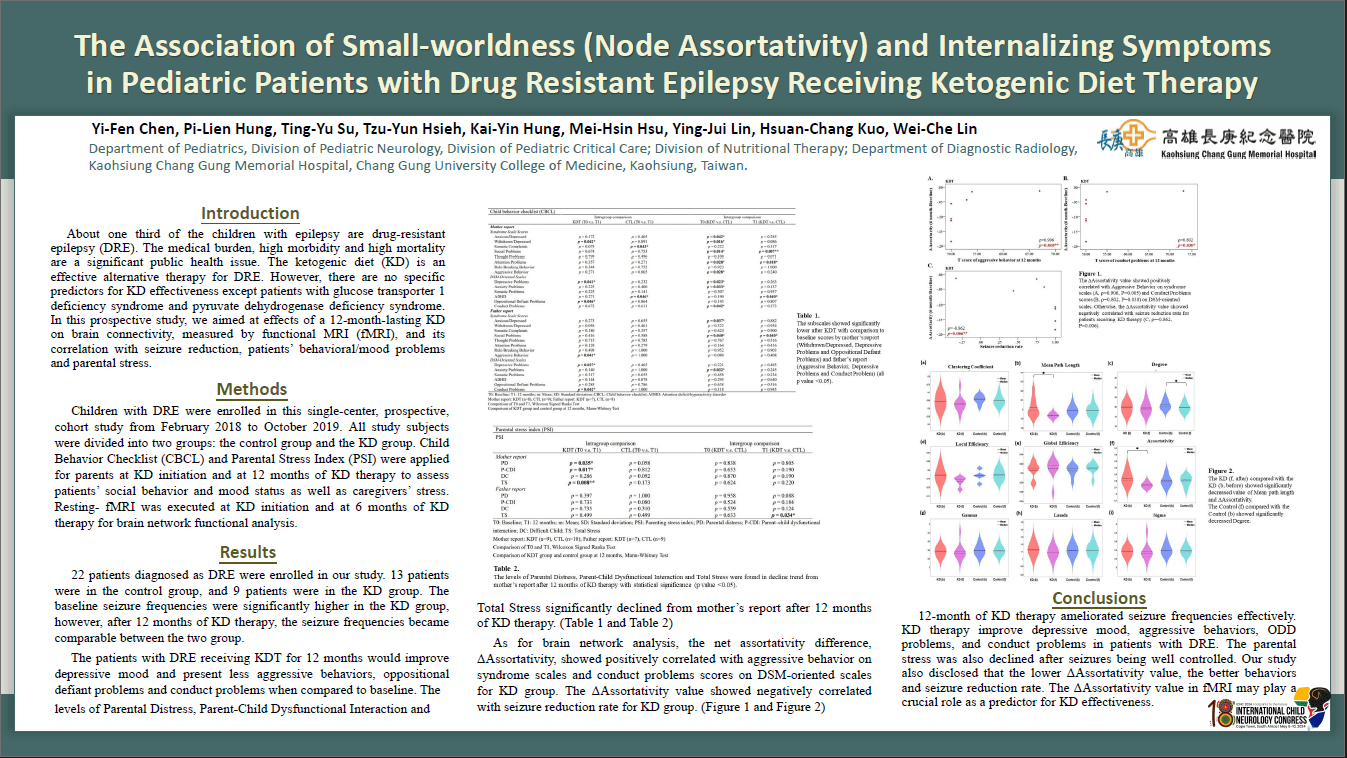The Association Of Node Assortativity And Internalizing Symptoms In Drug Resistant Epilepsy Case With Ketogenic Diet
Background: The ketogenic diet(KD) is an effective alternative therapy for drug-resistant epilepsy(DRE). However, there are no specific predictors for KD effectiveness. In this study, we aimed at effects of a 12-month-lasting KD on brain connectivity, and its correlation with seizure reduction, behavioral/mood problems and parental stress. Method: Children with DRE were enrolled in this single-center, prospective, cohort study from February 2018 to October 2019. They were divided into two groups: the control group and the KD group. Child Behavior Checklist and Parental Stress Index were applied for parents at initiation and at 12 months of KD therapy. fMRI was executed at initiation and at 6 months of KD therapy. Result: Twenty-two patients were enrolled. There are 13 patients in the control group and 9 patients in the KD group. After 12 months of KD therapy, the seizure frequencies became comparable between two groups. The depressive problem score and the oppositional defiant problem score were lower. As for brain network analysis, the net assortativity difference(ΔAssortativity) showed positively correlated with aggressive behavior and conduct problems scores for KD group. ΔAssortativity also showed negatively correlated with seizure reduction rate for KD group. Conclusion: Our data demonstrated that 12-month of KD therapy ameliorated seizure frequencies in patients with DRE. KD therapy also improve depressive mood, aggressive behaviors, ODD, and conduct problems in patients with DRE. Our data disclosed that the lower ΔAssortativity value, the better behaviors and seizure reduction rate. The ΔAssortativity value may play a crucial role as a predictor for KD effectiveness.
Yi-Fen Chen
Kaohsiung Chang Gung Memorial Hospital
Taiwan
Pi-Lien Hung
Kaohsiung Chang Gung Memorial Hospital
Taiwan
